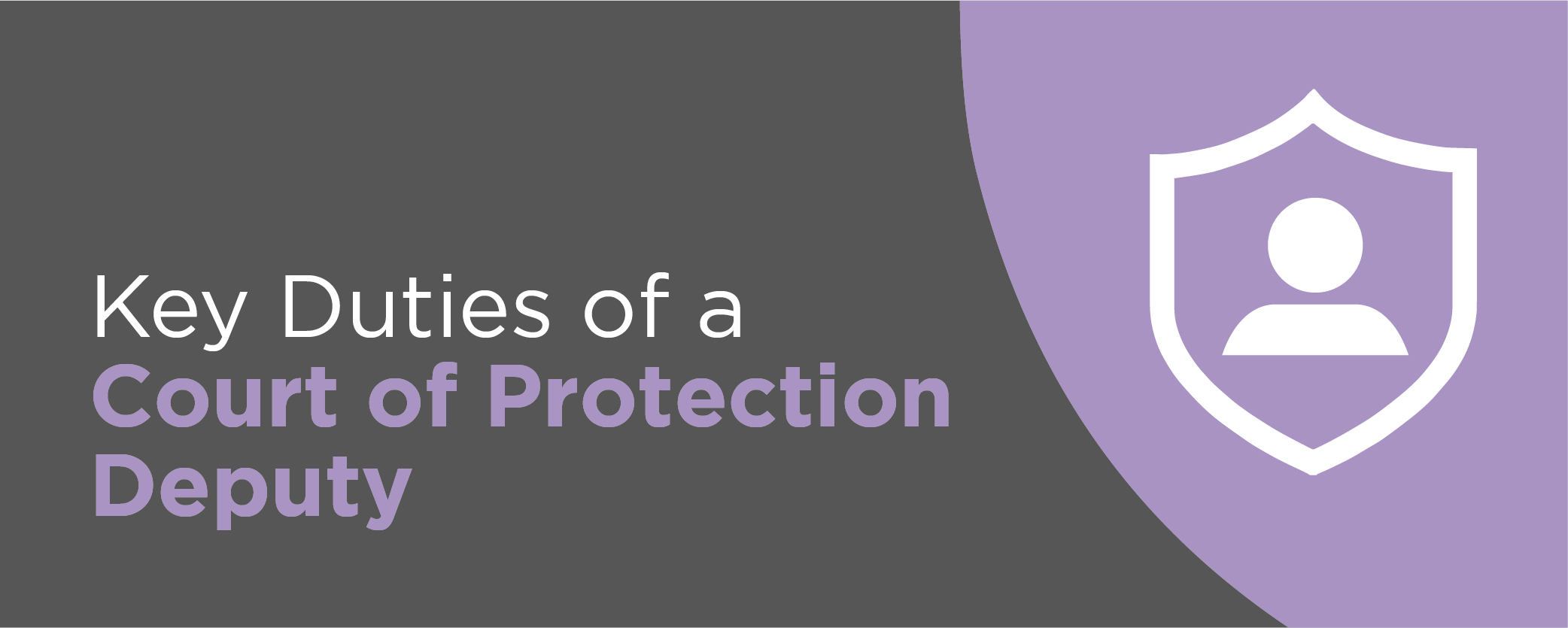- Basildon 01268244144
- Chelmsford 01245453800
- Colchester 01206217300
- London 020 4586 1280

The Court of Protection is responsible for making decisions on behalf of those who lack the capacity to make decisions for themselves. A deputy may be appointed to make decisions on behalf of the individual with respect to their property and financial affairs, or health and welfare.
A deputy is someone appointed by the Court of Protection to act as a legal representative for someone unable to make decisions for themselves. A deputy is similar to a lasting power of attorney, but different in that the Court of Protection must decide whether an individual is suitable to be a deputy.
The role of the deputy is to ensure that the best interests of the individual are always considered when important decisions are made. In this article, we will discuss the key duties of a Court of Protection deputy.
1. Acting in the best interests of the individual
The central duty of a deputy is to act in the best interests of the individual they represent. This means that they must consider the individual's wishes, feelings, beliefs, and values when making decisions on their behalf. They must also consider any other relevant factors, such as the views of family members, medical professionals, and care providers.
2. Managing the individual's finances
A deputy may be appointed to manage the financial affairs of an individual who lacks the capacity to do so themselves. This may include paying bills, managing investments, and making financial decisions on behalf of the individual. The deputy must always act in the best interests of the individual and ensure that their financial affairs are managed responsibly.
3. Making decisions about healthcare and welfare
A deputy may also be appointed to make decisions about an individual's healthcare and welfare. This may include decisions about medical treatment, where the individual should live, and what care they should receive. The deputy must always act in the best interests of the individual and ensure that their healthcare and welfare needs are met.
4. Keeping accurate records
A deputy must keep accurate records of all decisions made on behalf of the individual they represent. This includes financial records, healthcare records, and records of any decisions made about the individual's welfare. These records must be kept up-to-date and made available to the Court of Protection when required.
5. Seeking professional advice
In most cases, a deputy will not have expertise in all areas relevant to the individual's needs. Therefore, the deputy needs to seek professional advice when necessary. This may include seeking advice from medical professionals, financial advisors, and legal experts. Seeking professional advice ensures that the deputy is making informed decisions on behalf of the individual.
6. Reporting to the Court of Protection
A deputy must report to the Court of Protection regularly. The deputy must provide details of all decisions made on behalf of the individual, including financial decisions, healthcare decisions, and decisions about the individual's welfare. The deputy may also be required to provide details of any changes in the individual's circumstances.
Final thoughts
In short, the duties of a deputy are varied and important. The central duty of the deputy is to always act in the best interests of the individual they represent. This includes managing the individual's finances, making decisions about healthcare and welfare, keeping accurate records, seeking professional advice, and reporting to the Court of Protection.
The role of the deputy is crucial to ensuring that those who lack the capacity to make decisions for themselves are protected and their best interests are always considered.
If you are a deputy or are looking to become one and would like further advice on the duties of a deputy, we have a specialist team at Birkett Long who would be happy to assist you.
I’m based in our Colchester office and am available for a free 15 minute chat over the phone on 01206 217307 or email me on lisa.cox@birkettlong.co.uk


